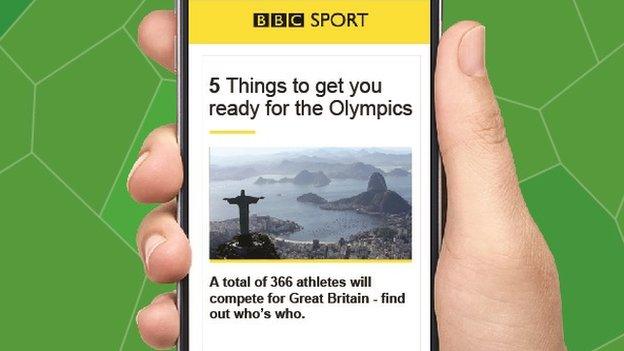Rio Olympics 2016: Team GB medal haul makes them a 'superpower of sport'
- Published
Great Britain is "one of the superpowers of Olympic sport" after its performance in Rio, according to UK Sport chief executive Liz Nicholl.
A total of 67 medals with 27 golds put Team GB second in the medal table - above China, external for the first time since it returned to the Games in 1984.
"It shows we are a force to be reckoned with in world sport," Nicholl said.
Britain is the first country to improve on a home medal haul at the next Games, beating the 65 medals from London 2012.
They won gold medals across more sports than any other nation - 15 - and improved on their medal haul for the fifth consecutive Olympics.
The Queen offered her "warmest congratulations" for an "outstanding performance" in Rio, while the Duke and Duchess of Cambridge and Prince Harry said the team were an "inspiration to us all, young and old".
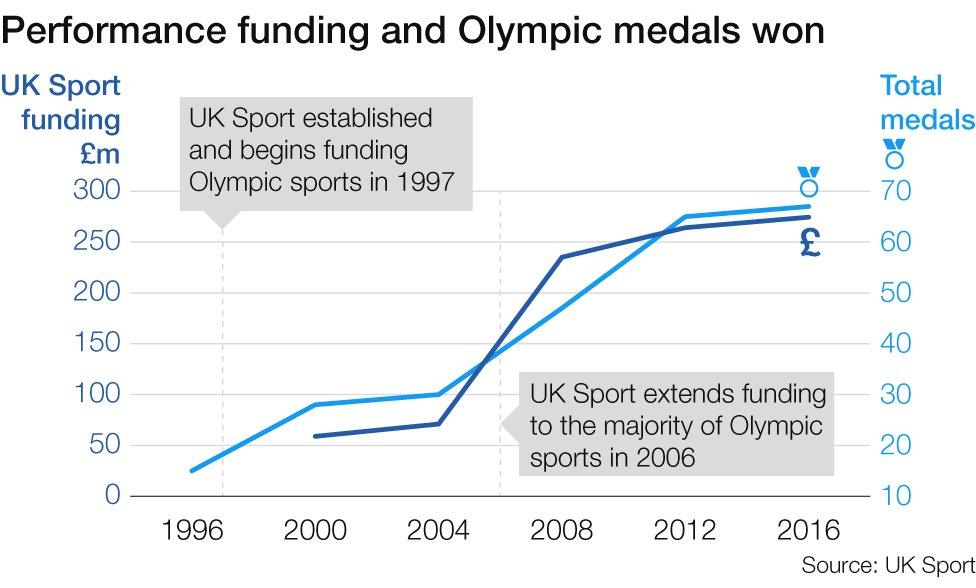
The money behind the medals
UK Sport is the body responsible for distributing funds from national government to Olympic sports.
Team GB's 67 medals in Brazil cost an average of just over £4m per medal in lottery and exchequer funding over the past four years - a reported cost of £1.09 per year for each Briton.
Nicholl added: "Half of the investment that we're putting into Rio success also feeds into Tokyo [2020 Olympics]. We're very confident that we've got a system here that's working and that's quite exceptional around the world."
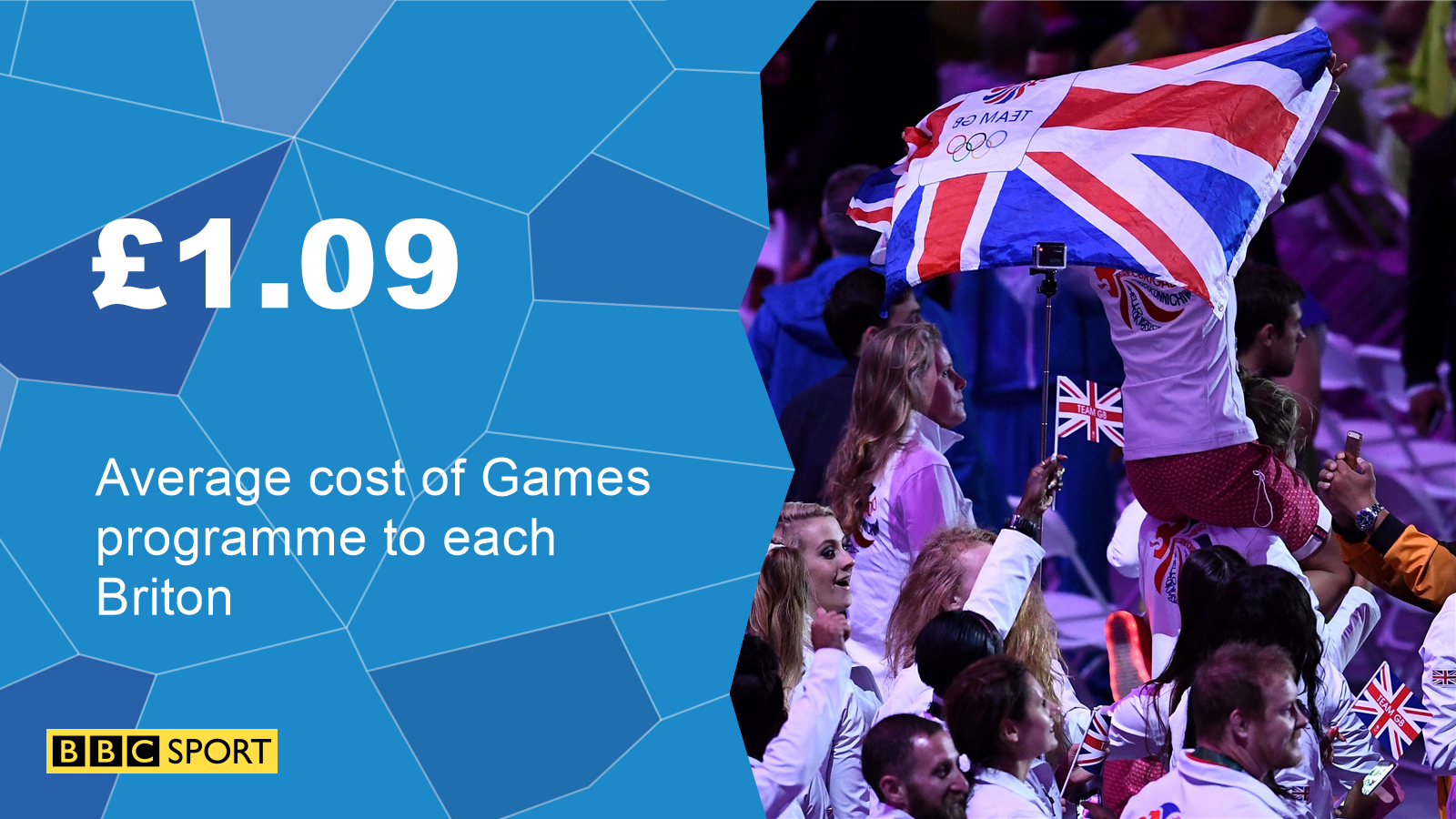
As determined by the Sport Industry Research Centre
Chief executive of British Gymnastics Jane Allen told BBC Radio 5 live: "You wouldn't want to be in some of the other countries at the moment, who are examining themselves.
"UK Sport has made those sports that receive the funding be accountable for their results. This is the end result in Rio - the country should expect a return for their investment, it is incredible."
"It's tough to imagine a stronger performance," said Bill Sweeney, chief executive of the BOA.
"When you get into the [Olympic] village there's been a real collective team spirit around Team GB - you just got a sense that this was a team that wanted to do something really special."
Britain had been set a target by UK Sport to make Rio its most successful 'away' Olympics by beating the 47 medals from Beijing in 2008, but Nicholl said there had been an "aspirational" aim to surpass the achievements of London 2012.
Sweeney said he "wasn't surprised" by the extent of the success, but that beating China "wasn't on the radar" before the Games.
"China are a massive nation, aren't they? Goodness knows how much money they spend on it," he said.
"To be able to beat them is absolutely fantastic.
Sweeney said it would be difficult for Britain to replicate their position in the medal table at Tokyo 2020, at which he predicted hosts Japan, China, Russia and Australia would all improve.

How has China reacted?
China did top one table in Rio - that of fourth-place finishes, according to data from Gracenote Sports.
They had 25, with the US next on 20 and Britain third on 16.
Gracenote head of analysis Simon Gleave said China's decline in medals from London 2012 "has been primarily due to the sports of badminton, artistic gymnastics and swimming".
China Daily said: "In contrast with China's previous obsession with gold medals, the general public is learning to enjoy the sports themselves rather than focusing on the medal count. Winning gold medals does not mean everything anymore in China."
Swimmer Fu Yuanhui's enthusiasm at winning a bronze medal "took Chinese viewers by surprise", said Global Times. "They are used to their athletes focusing in interviews on their desire to win glory for the country."
Many users of the Chinese social media site Weibo posted messages using the hashtag #ThisTimeTheChinaTeamAreGolden, saying their athletes were still "the best" irrespective of their placing in their events.
- Published22 August 2016
- Published21 August 2016
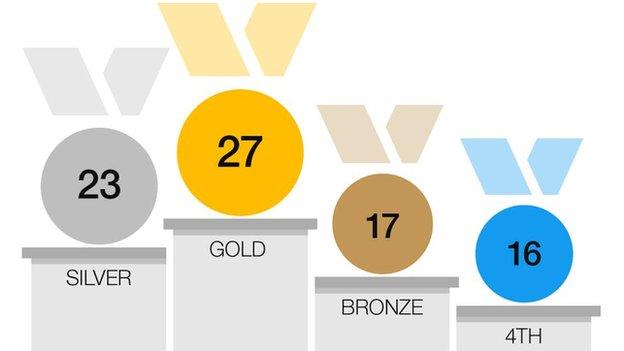
- Published22 August 2016
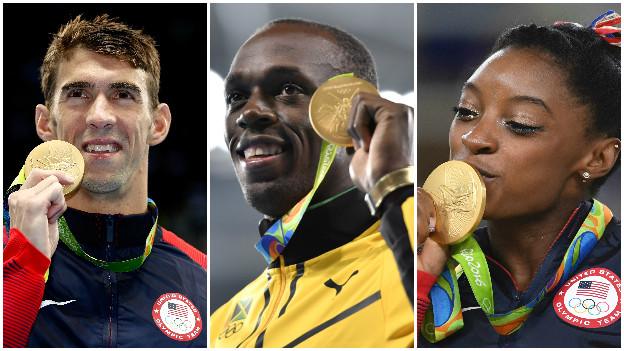
- Published21 August 2016
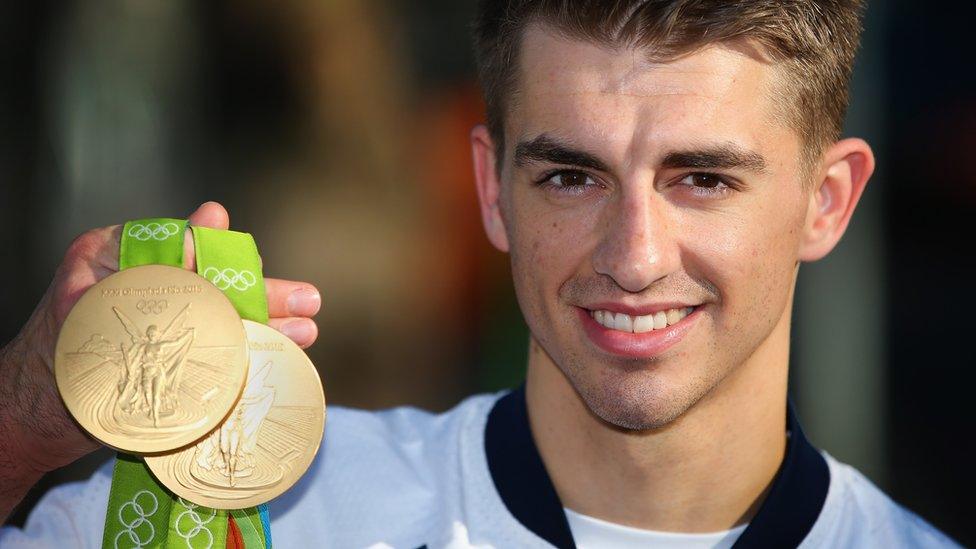
- Published18 August 2016

- Published3 August 2016

- Published19 July 2016
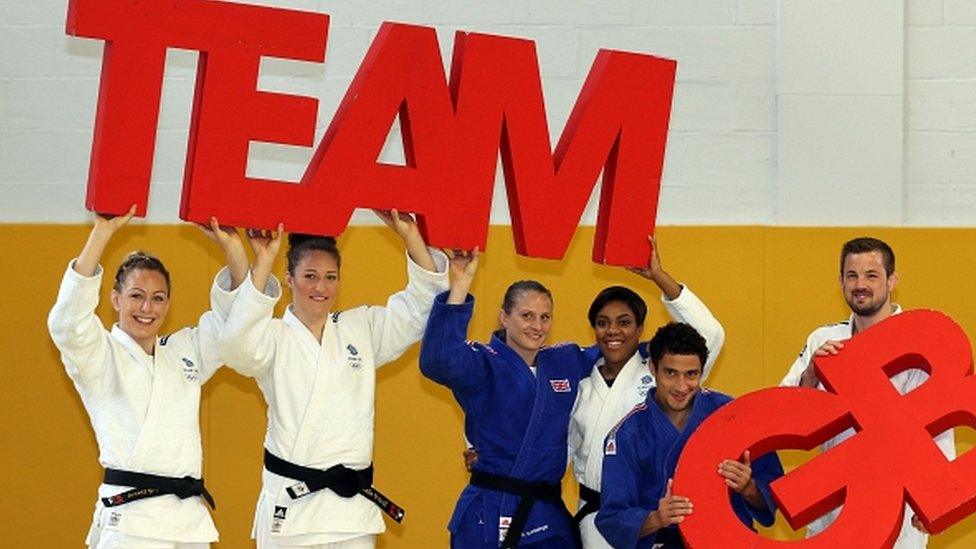
- Published3 August 2016
